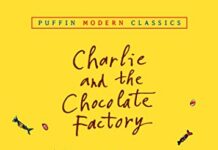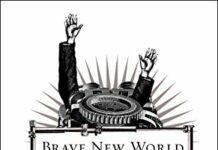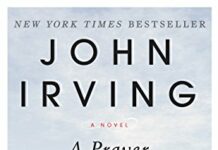
Ebook Info
- Published: 2012
- Number of pages: 432 pages
- Format: Epub
- File Size: 0.35 MB
- Authors: Evelyn Waugh
Description
Selected by Modern Library as one of the 100 best novels of the century and called “Evelyn Waugh’s finest achievement” by the New York Times, Brideshead Revisited is a stunning exploration of desire, duty, and memory.
The wellsprings of desire and the impediments to love come brilliantly into focus in Evelyn Waugh’s masterpiece — a novel that immerses us in the glittering and seductive world of English aristocracy in the waning days of the empire.
Through the story of Charles Ryder’s entanglement with the Flytes, a great Catholic family, Evelyn Waugh charts the passing of the privileged world he knew in his own youth and vividly recalls the sensuous pleasures denied him by wartime austerities. At once romantic, sensuous, comic, and somber, Brideshead Revisited transcends Waugh’s early satiric explorations and reveals him to be an elegiac, lyrical novelist of the utmost feeling and lucidity.
User’s Reviews
Review “A many-faceted book….beautifully told by one of the most exhilarating stylists of our time.”―Newsweek”Heartbreakingly beautiful….The 20th century’s finest English novel.”―Los Angeles Times”A genuine literary masterpiece….Brideshead Revisited is actually a wildly entertaining, swooningly funny-sad story about an iumpressionable young man, Charles Ryder, who goes to Oxford in the 1930s and falls in love with a family: the wealthy, eccentric, aristocratic Flytes, owners of a grand old country house called Brideshead….Told in flashbacks from the dark days of World War II, the novel is aglimmer with the guttering candle glow of an elegant age that was already passing away.”―Lev Grossman, TIME”Evelyn Waugh’s finest achievement.”―John K. Hutchens, New York Times
Reviews from Amazon users, collected at the time the book is getting published on UniedVRG. It can be related to shiping or paper quality instead of the book content:
⭐ The author, Waugh, is a moral and ethical guy from everything I’ve read about him. I recall my wife watch ing Brideshead on PBS a many years ago so I finally picked up the book and started reading it. I got to about page 55 and began to see where the main character’s life was heading, ie, a wet relationship with a man. That was it…I threw it in the trash. The book held my attention buy I have no desire to read about that perverse junk. If you like and encourage homosexuality you will probably enjoy this book. The reason I was taken by surprise about the theme was that I knew the book was written in the 40s and I (wrongly) assumed that the perverse subject would not rate an 11-part miniseries in the 80s.
⭐ This version of Brideshead Revisited written by Evelyn Waugh is the audiobook which is read by Jeremy Irons. I have tried to locate this version for years without luck. Then by chance I located it in a library in Calgary USA. In the UK it’s just impossible to find. If you know Brideshead you will love Jeremy’s reading of it. He strikes the perfect balance in his speech pattern and is able to convey disdain, surprise, cordiality and love. For me after all these years since watching it first on Granada TV back in the early eighties and having the DVD’s of both the original and the Ben Whishaw version it was like hearing the voice of an old friend. Oddly I only read the book after seeing the Granada series and have re-read it countless times since, my dog-eared copy is well thumbed. To hear Jeremy read it, is like opening a time capsule, it takes me back to those bleak austere days of the three day week, power cuts, and wild-cat strikes. The enunciation, clarity of speech and impeccable diction will leave you reeling. I always find some new word to research when re-reading Brideshead and listening to Jeremy corrects my mispronunciation of Latin. If you have not heard this you are missing out. John M P.S. Hope this helps you decide.
⭐ This is the best known of Evelyn Waugh’s novels where he displays his affection for the English aristocracy and his fascination with the Catholic faith. The narrator is an architectural painter Charles Ryder who becomes close friends at Oxford with Sebastian Flyte, son of a Marquess. Ryder, an agnostic, is taken to visit Brideshead which Sebastian describes as where his family lives rather than as his home. Ryder becomes well acquainted with the entire family at Brideshead and with Sebastian’s absent father, Lord Marchmain who lives in Italy. Sebastian is a flamboyant homosexual who is loved but at the same time estranged from his family. Sebastian correctly believes that his mother is trying to enlist Ryder to bring Sebastian back into the fold and to try to control Sebastian’s drinking. This causes strain in Ryder’s relationship with Sebastian as does Ryder’s romantic attentions to Sebastion’s sister Julia. A central theme of the book is the struggle Ryder has in understanding the Catholic faith of the family at Brideshead. Making the narrator an architectural painter was very appropriate for Waugh’s style of writing–only a painter could see and describe so evocatively the beauty of the landscape, interior decoration and magnificence of the architecture at Brideshead.The book was made into a great British TV mini-series and into a not very well done movie. The movie places too much emphasis on a homosexual relationship between Sebastian and Ryder. This relationship is not explicitly described in the book and is in no sense a central theme of the novel. Indeed, while Sebastian is described throughout the book as a flamboyant homosexual, Ryder clearly has interests in women much to the annoyance of Sebastian.
⭐ It’s amazing that it took so many hours for this short book to be dramatized by the BBC. But reading “Brideshead Revisited” for a second time, I once again appreciated what a great writer Evelyn Waugh was. Vividly drawn characters and locations portrayed through its narrator’s remembrances make “Brideshead” a rich reading experience.There’s not much action, for readers who look for that. There are tight but dense descriptions of an era that was like a languorous fairy tale for young Charles Ryder, who narrates the story after his youthful sense of awe has been overshadowed by the cynicism of wartime. What we as readers can dwell on at our leisure isn’t rushed by the BBC dramatization (which I highly recommend as an example of a nearly perfect adaptation of a novel), giving Waugh’s characters and story a treatment appropriate to the medium.Read the book, above all. But then set aside lots of hours to watch perhaps the best adaptation of a book ever.
⭐ Long before “Downtown Abbey,” there was “Brideshead Revisited,” a classic work by Evelyn Waugh that perfectly captures the spirit of the times between the two world wars as the British aristocracy started losing hold of their place in the world.Charles Ryder narrates the story in the first person, looking back on his life, beginning with his time as a student at Oxford. There he meets the handsome, rich Sebastian Flyte, an incessant party boy who grew up at Brideshead and is having a difficult time finding his way in the world. Sebastian takes Charles to Brideshead, and it isn’t long before the Flyte family accepts Charles as one of their own.The story is really rather simple, but it is the vividly-drawn characters and underlying themes of family, love, death and religion that make the book complex and multilayered. (Note: The first chapter is a little slow-going. Keep at it! It quickly picks up after that.)Beautifully written, this is an imaginative and evocative tribute to a long-lost way of life.
⭐ Evelyn Waugh’s brilliant Brideshead Revisited is a magic carpet for the heart and soul, evocative and powerful and eternally fresh, told with a skill and eye incomparable 20th century fiction. Read it and learn about a time and place and set of sensibilities now lost to us; read it and rejoice at what the written word can do; read it for its poignancy as Waugh reveals his lessons in the art of life, love, and literature. But be warned, when you read it, you will weep not simply for these characters come to life, but for us all.
⭐ This is really a classic novel in format and may endure to be one. There is formal ornamental language throughout the book to reflect the aristocratic culture of the time. This language is certainly intentional, as is made clearly apparent in the preface. The reader learns about the English aristocracy, their manners, food, furniture, house and the grounds of their estates. The disadvantage of this type of language is that the reader’s mind may drift at times. Sometimes this requires rereading some of the paragraphs, especially in the middle section of the book.The plot is set in a changing world in Britain and America prior to and during World War II. The PBS series, Brideshead Revisited, aired in the 1980s, and is available on DVD or download today to supplement the reading of this novel. The television series helps bring to life the characters and make them solidify in your memory.Captain Charles Ryder and his company of soldiers are to set up headquarters at a large estate. Charles recognizes the mansion as Brideshead. The memories of his connection to Brideshead in his youth are awakened.He was a young artist when he met Lord Sebastian Flyte at Oxford in 1923. Sebastian was very rich and bored. He wanted fun, lightness, silliness; he wanted entertainment to fill the emptiness within. He carried Aloysius, his toy teddy bear everywhere. Charles was infatuated with him. Sebastian was irresponsible but his family bailed him out. His family took steps to oversee his activities and hired Mr. Samgrass to keep an eye on him. Sebastian’s family, especially Lady Marchmain Flyte, his mother, pulled Charles into intimacy in order to control Sebastian. She succeeded in making Charles open up to her, but her attempts to convert Charles to Catholicism failed. Sebastian wanted to get away from his family; he felt trapped. He was less and less in love with Charles as Charles become close to his mother.Sebastian drank more and more. His family, especially his mother, tried to control this, but Sebastian only drank more heavily. Charles wanted to please Sebastian and win his approval, so he gave him money when he asked for it. Sebastian’s mother coldly asked Charles to leave Brideshead when she found he had given Sebastian money for drinking.Charles had had enough and distanced himself from Brideshead, although he still pined for Sebastian. He married Celia, a pretty woman, who took pride in his success as a painter and worked hard to promote him. Charles was attracted to her initially but did not love her. After returning from a 2-year trip to Central America where he had gone to renew his artistic inspiration, Charles showed indifference to his wife and children. When he and Celia were on a ship on vacation, he saw Julia, Sebastian’s sister. He was attracted to her because she reminded him of Sebastian.Julia and Charles both got divorced so they could get married. However, as her father lay dying and Charles did not see the purpose of a priest giving her unconscious father, Lord Marchmain, the “last rites”, she realized that she could not marry Charles and give up her religion.The author says the book is about faith in God, the Brideshead family vs Charles, who is a nonbeliever. The book is about “the operation of divine grace on a group of diverse but closely connected characters”. The book seems to be more than that to me. It is about the choices we make, the paths we take in love and faithfulness.
⭐ I tried very hard to like this book because many whose opinion I value have named it a favorite. But from the start I was put off by the characters, who conjured up memories from long bygone undergraduate days in the student center, whose approach to our table would generate an eye roll of warning: uh oh, here comes______. The charming trust-fund baby who would later have a few divorces and broken children under his belt, the rascal who lives only in the moment only slightly less annoying than the guy or girl who must pass negative judgment on whoever happens to be elsewhere, and the child of wealth and privilege who cannot enjoy the moment because anxiety for the future and the need to feel loved gets in the way.But I am not sorry at all to have read this novel along with my book club because there is so much to admire in Waugh’s brilliant handling of these characters and the brittle humor that makes them real. And not least among his gifts is his splendidly detailed descriptions of places visited and revisited. I especially found in these “revisits” a welcome respite from the angst and pathos of Brideshead’s people. I had hoped for a more satisfying resolution for them all.
⭐ The story is told through the eyes of Charles Ryder, a young man who had always felt himself to be an outsider, first in his own home due to his emotionally distant father and then at Oxford University where he fell in with the sort of crowd he had been warned against, a group of wild and eccentric young men lead by Sebastian Flyte, the younger son of an aristocratic family. Over the years – 1923-1945 – Charles finds his life to be increasingly entwined with various members of the Flyte family, primarily first with Sebastian and later with Julia.The overall tone of the saga is one of sadness, of longing for a bygone time when the lives of aristocrats like the Flytes were glamorous and secure. There are also themes of wasted opportunities, especially those of the younger Flytes, and a constant battle between the profane secular world and the spiritual one personified by Catholicism. There is also a very thinly veiled reference to homosexuality, including a never quite clarified question as to the true nature of Charles and Sebastian’s relationship.The book is beautifully written, filled with marvelous descriptions of this bygone time. Additionally there are numerous exchanges filled with a biting, almost bitter wit particularly in the exchanges between Charles and his father. Overall is this a lovely story to curl up with to spend a few hours away from todays troubling world.
⭐ Brideshead Revisited is a sentimental look at English aristocratic life in the 1920s, all cricket and cucumber sandwiches. As much as I enjoy dialogue with “I say,” and “righty-o,” I have little patience for English aristocracy, especially after The Road to Wigan Pier.Waugh acknowledges the difficulty by having his protagonist, Charles, criticized for his schmaltzy paintings of English manor houses. “Charm is the enemy of art,” we’re told. Waugh is a skilled writer, producing credible characters and dialogue, rich settings, and his own shrewd insights.Thematically, the novel is a defense of privilege and of religion. Maybe these two are linked, in a “divine right” sense, but neither is persuasive. We are led to believe that the Brideshead dynasty is entitled to privilege because they have fought for king and country since Henry the Fifth.The common people can’t organize an army without the officer class. They also don’t have proper respect for the finer things, like Brideshead’s renaissance fountain. It should be noted that the Oxford lads caper in their fountain, Mercury, so clearly a double standard.If not for his own commentary, we would suspect Waugh of subverting his theme. Likewise, with the defense of religion. Lady Marchmain’s devout Catholicism maims her four children so that none is able to produce an heir. Thus ends the noble line, leaving middle-class Charles to defend the realm.Overall, a good book, but I would recommend Parade’s End, instead, by Ford Madox Ford. Written during the period, and not as a reminiscence, it is both more credible and more grounded.
Keywords
Free Download Brideshead Revisited in Epub format
Brideshead Revisited Epub Free Download
Download Brideshead Revisited 2012 Epub Free
Brideshead Revisited 2012 Epub Free Download
Download Brideshead Revisited Epub
Free Download Ebook Brideshead Revisited





